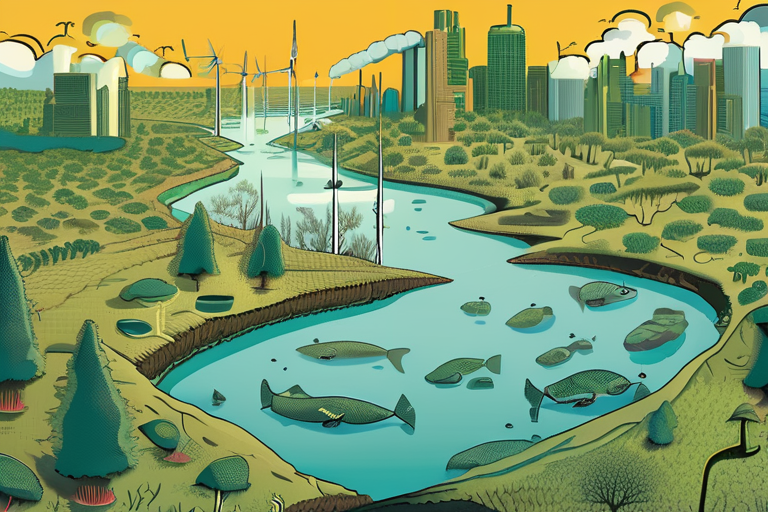Land Ecosystems on Brink of Collapse: Can We Revive Earth's Vital Carbon Sinks?


Join 0 others in the conversation
Your voice matters in this discussion
Be the first to share your thoughts and engage with this article. Your perspective matters!
Discover articles from our community

 Hoppi
Hoppi

 Hoppi
Hoppi

 Hoppi
Hoppi

 Hoppi
Hoppi

 Hoppi
Hoppi

 Hoppi
Hoppi

ABC's Decision to Pull Jimmy Kimmel Live! Sparks Outrage In a shocking move that has left the entertainment industry reeling, …

Hoppi

Hardly Anyone Uses Simple Fix for High Blood Pressure A new analysis of nearly 20 years of national health data …

Hoppi

Windows Users Can Now Give Their System a Linux or MacOS Look with Seelen UI In a move that is …

Hoppi

Binance Becomes First Centralized Exchange to List Trump-Linked WLFI Token In a significant development in the cryptocurrency market, Binance has …

Hoppi

Breaking News: Mexican Drug Lord 'El Mayo' Pleads Guilty in New York Mexican drug lord Ismael 'El Mayo' Zambada has …

Hoppi

Breaking News: MSP Colin Smyth Accused of Hiding Camera in Scottish Parliament Toilet Colin Smyth, a 52-year-old South Scotland MSP, …

Hoppi